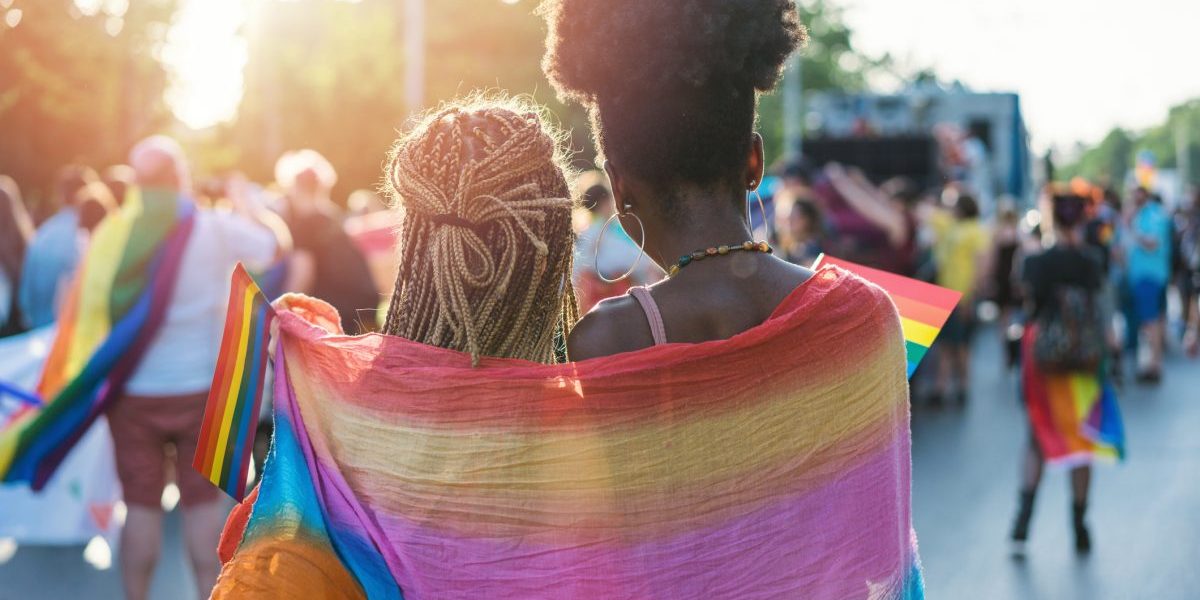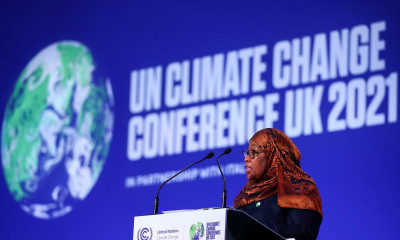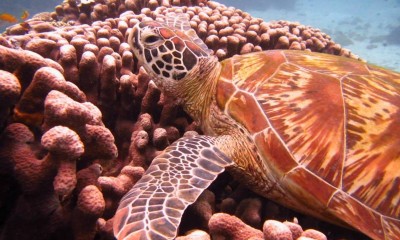South Africa has long been referred to as a ‘rainbow nation’ with a progressive constitution that was written to shape society after a cruel political past indoctrinated institutionally and ideologically with remnants of hate driving the oppressive structure. As the Youth Policy Committee Gender Working Group (YPC), whose primary focus is on policy change and advocacy for women, children, and vulnerable communities, it is important to bring attention to the LGBTQIA+ community who feel excluded from this ‘rainbow nation’. We look at the public, personal, economic, spiritual, social and legal spaces, and how they create, maintain or overlook the hate crimes experienced by the LGBTQIA+ community. The plight of the LGBTQIA+ community has long been ignored and calls to government and civil society to change their ways and attitudes are becoming louder.
The deeply conservative and homophobic nature of South African Society
South Africa was the first country to constitutionally protect against discrimination based on sexual orientation and the fifth in the world to legalise same sex marriages. The legal ‘protection’ provided to queer individuals is unmatched compared to the rest of the continent. However, a disparity exists between the protection provided by the law and the lived experiences of queer individuals.
The right not to be discriminated against based on sexual orientation, couched in Section 9 of the Constitution and in the Promotion of Equality Act, the right to human dignity and the right to life, contemplated in Sections 10 and 11 respectively, are non-derogable rights guaranteed to queer individuals, meaning that certain human rights are considered so important that they cannot be limited or suspended under any circumstance. Yet, all these rights were overlooked when the lives of Siphamandla Khoza, Andile ‘Lulu’ Nthuthela, Nathaniel “Spokgoane” Mbele, Lonwabo ‘Jack’, and many others were taken.
The conservative nature of our society prevailed when the legislature allowed for queer individuals to enter a civil union instead of getting married in terms of the Marriages Act because it is believed that marriage is between a man and a woman. The Civil Union Act, meant to recognise same sex couples allows for marriage officers to refuse to solemnise a civil union between same sex couples based on religion or conscience of belief. This section has been repealed by the Civil Union Amendment Act 2020. However, the point still stands that South African society is deeply conservative and homophobic. Only 28.6% of Home Affairs branches had marriage officers that were willing to marry same sex couples.1The Mail & Guardian. “Less than a third of home affairs officials are willing to marry same-sex couples,” The Mail & Guardian, 2016, https://mg.co.za/article/2016-09-15-00-409-home-affairs-offices-only-117-have-officials-willing-to-marry-same-sex-couples. [Accessed 23 July 2021].
The Prevention and Combating of Hate Crimes and Hate Speech Bill is aimed at addressing concerns of racism, xenophobia and related intolerances. Introduced on 30 May 2018, the bill was notably created after the rising numbers of hate crimes and hate speech in the country. The bill explicitly expresses its intentions to protect against racism, sexism and homophobia and while this is highly commendable, the bill has still not been passed.
The role of faith-based institutions
Religious institutions seem to perpetuate the hate crimes experienced by queer individuals. In extreme cases, religious leaders have advocated for killings and hateful crimes to be committed against those in the queer community. Pastor Oscar Bougardt was reported to have celebrated the news of one boy and nine men who were killed for homosexuality by members of the Islamic state (ISIS). His exact online comments were, ‘We need ISIS to come to countries that are homosexual-friendly. ISIS, please come rid South Africa of the homosexual curse’.2J Campbell, “South African Court Delivers Blow to Religious Defense of Hate Speech,” Council on Foreign Relations, 2018, https://www.cfr.org/blog/south-african-court-delivers-blow-religious-defense-hate-speech. He was found in contempt of a court order barring him from saying any anti-gay slurs.
Whilst not all religious institutions intentionally promote acts of violence and hateful crimes, they justify acts of transphobia and homophobia by members of their institutions. Other religious teachers choose to cower behind their right to religious freedom. Stating that any harmful acts done in the name of religion should be allowed and are justifiable, not being allowed to criticize transphobic or homophobic people would be an infringement on their right to religious freedom.
South Africa’s highly respected spiritual guides, sangomas, are also joining the fight against queer killings and acts of transphobia and homophobia. There is an important need for such support as there are many spiritual healers who identify as queer. It is very clear that faith/spirituality/religion and sexuality are not mutually exclusive and many sangomas are making it a point to make this known.
Medical Research
For social unacceptance to translate into medical injuries where an individual loses their dignity and their life, is something that cannot go ignored. Simphiwe Mkhize, was 18 years old when he was denied his right to attend school in Tongaat, north of Durban, due to fights with other pupils who called him derogatory names and physically harmed him.3Chris Makhaye and News, “LGBTQIA+ People in South Africa ‘Are under Siege,’” New Frame, April 22, 2021, https://www.newframe.com/lgbtqia-people-in-south-africa-are-under-siege/.Nonhlanhla Kunene, 37, was raped, stabbed to death and left naked from the waist down in the Edendale township of KwaZulu-Natal.4IbidAs early as 2011, activist Noxolo Nogwaza was gang-raped and murdered in what is coined as ‘corrective rape’ – her face and head were disfigured after being stoned, she was stabbed several times with broken glass and condoms were found near her dead body.5David Smith, “South Africa Gay Rights Activists Warn of Homophobic Attacks after Murder,” the Guardian, May 3, 2011, https://www.theguardian.com/world/2011/may/03/south-africa-homophobic-attacks.These cases are indicative of a pattern regarding watching and partaking in queer hate crimes.
Queer Rights, Economic Institutions and the Dynamics Therein
Queer identifying people, with an emphasis on black-femme bodies, are disproportionately the target of violent crimes and open discrimination. These spill over into the economy, resulting in a ‘double homicide’ for queer bodies and the economic wellbeing of all people. The impact of discrimination against queer people has two notable, general economic effects in South Africa.6S Nyeck et al., “THE ECONOMIC COST of LGBT STIGMA and DISCRIMINATION in SOUTH AFRICA the Economic Cost of LGBT Stigma and Discrimination in South Africa | 1” (, 2019), https://williamsinstitute.law.ucla.edu/wp-content/uploads/Impact-LGBT-Discrimination-South-Africa-Dec-2019.pdf.
Firstly, there is a wage differential between queer identifying and non-queer identifying individuals. Secondly, queer people are underemployed. Shepherd et al. estimated the economic costs of the wage difference and unemployment experienced by queer people was to the amount of over R2.5 billion and R1.7 billion respectively – a combined cost of R4.2 billion for the economy.7Ibid.The impact cannot be understated, and Badgett et al. notes a correlation between the propulsion of queer freedoms and rights and economic development in emerging markets such as South Africa.8M Lee Badgett et al., “The Relationship between LGBT Inclusion and Economic Development: An Analysis of Emerging Economies” 2014), https://www.usaid.gov/sites/default/files/documents/15396/lgbt-inclusion-and-development-november-2014.pdf.It is asserted that economies with greater rights and freedoms for queer identifying people experience higher GDP (per capita) and wellbeing.9Ibid
Public response to the spate of hate crimes towards the LGBTQIA+ community in South Africa
The month of April marks the beginning of Freedom month, where South Africans celebrate Freedom Day on the 27th of April. This year was not a not a celebration of South Africa’s liberties as it was tainted with the heinous murders committed against individuals within the LGBTQIA+ community during the month. The public took to the streets to say, ‘enough is enough’. Individuals called for perpetrators of these crimes to be caught and arrested, and for the justice system to take the murders of queer individuals more seriously.10Karabo Mafolo, “NEWSFLASH: LGBTQI+ Protesters Demand Government Action against Hate Crimes,” Daily Maverick, April 26, 2021, https://www.dailymaverick.co.za/article/2021-04-26-lgbtqi-protesters-demand-government-action-against-hate-crimes/.In a petition handed to parliament, protestors reiterated the need for government to take hate crimes of queer individuals seriously as well as restore proper funding to the deteriorating Rapid Response Team and the National and Provincial Task Team that are meant to confront the brutality LGBTQIA+ South Africans are faced with.11Ibid
Although large support for queer individuals has been shown, actions such as the African Christian Democratic Party protest to stop the Western Cape Education Department from passing a gender identity and sexual orientations policy, one that allows for inclusivity in spaces of learning, shows that as a country, whose constitution condemns homophobia, we still have a long way to go.
Intervention: Our saving grace
After more than 20 years of democracy, our communities continue to wake up to the stench of grief, mutilation, violation and oppression. Like all human beings, queer individuals are members of schooling communities, church groups and society at large, therefore anything that affects them should affect everyone else within those communities. ‘Queer lives matter’, a march to parliament in support of Lulu, demonstrated that members of society both in and out of the LGBTQIA+ community can work together to recognise the vulnerability of queer bodies.
The Gay and Lesbian Alliance of South Africa (GLASA), CIVICUS and the Hate Crimes Working Group operate under a mandate of fighting for equal opportunities, justice and rights for all members of the LGBTQIA+ community, as well as educating members of society about issues surrounding queer bodies. Furthermore, they continue to call on the government to fast-track the implementation of the Prevention and Combating of Hate Crimes and Hate Speech Bill of 2018 and to invest in gender sensitisation workshops for rural communities to foster harmony and a better understanding.
While recognising that addressing LGBTQIA+ rights is not a simple societal issue, the YPC Gender Working Group acknowledges that all actors of society play a role in perpetuating hate crimes against the LGBTQIA+ community. We can see the cracks in society that do not reflect the ideal policies seen in our constitution. The Gender Working Group is focused on policy change and advocacy for women, children and vulnerable communities and this means highlighting the struggles and dangers faced by the LGBTQIA+ community. As a youth collective, we have noticed the inherent homophobia in our spaces, something being undone by the government, and there is a need to reflect within our spaces. Faith-based institutions play an active role within South Africa and while we have seen the hate that can be projected through these institutions, we have also seen the sense of acceptance that can be found as well. Faith-based institutions can make or break the cycle of homophobia in their communities. In addition, acknowledging the refusal from health practitioners to treat queer individuals who have been hurt or attacked, to the inequalities faced in the workplace. different spaces have been seen to perpetuate the hate crimes faced by the LGBTQIA+ community. The LGBTQIA+ community is raising their voice and they need to be supported because they add a unique colour to our ‘rainbow nation’.
This statement was created by members of the Youth Policy Committee Gender Working Group.







